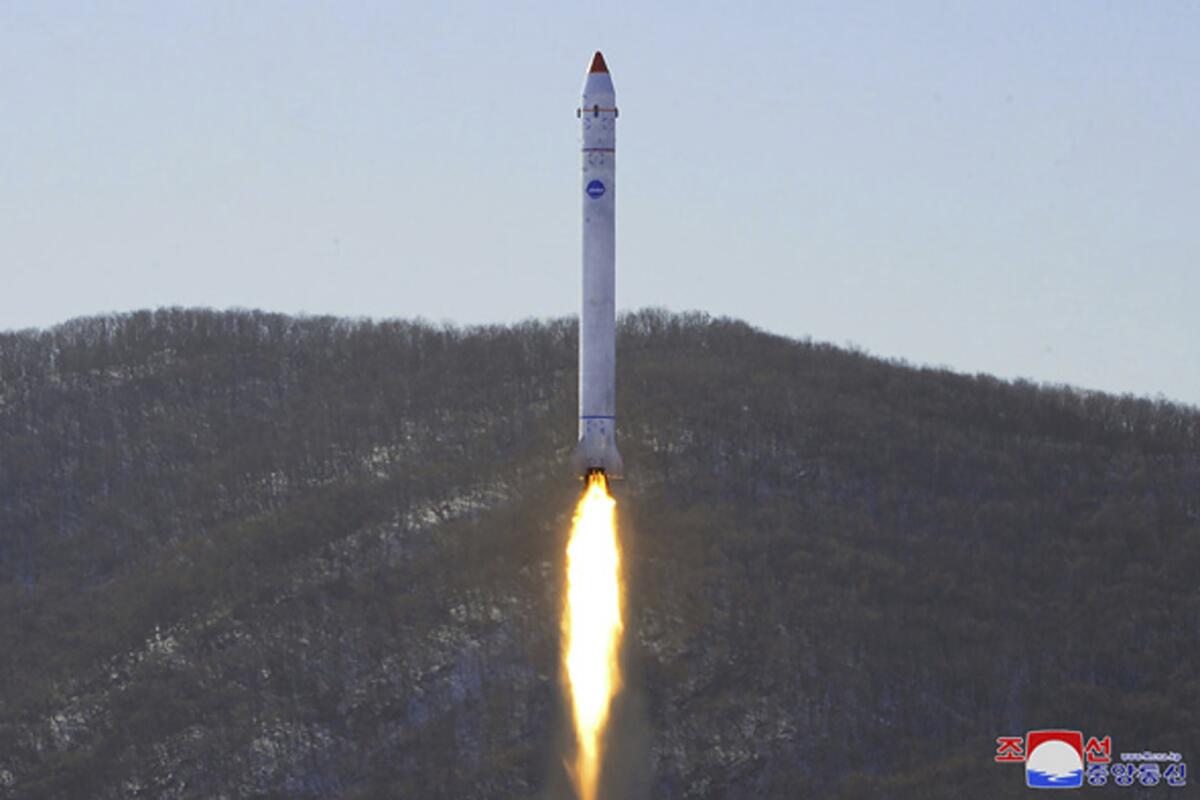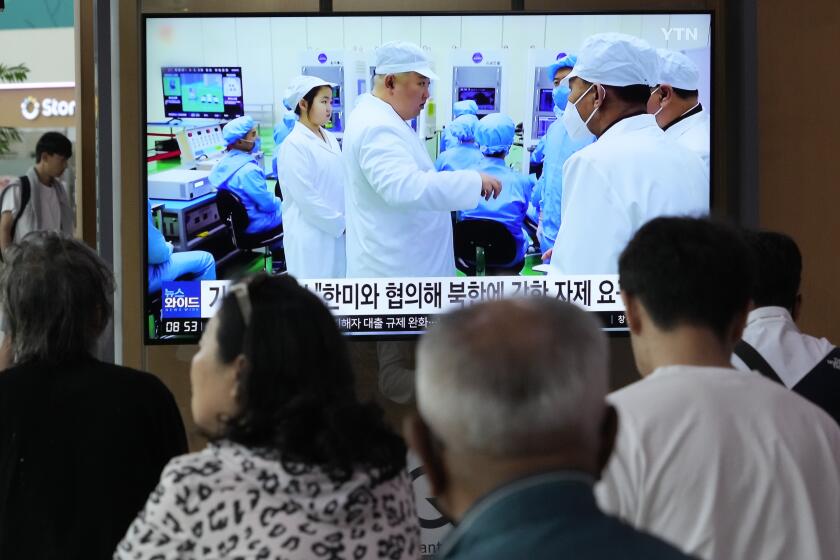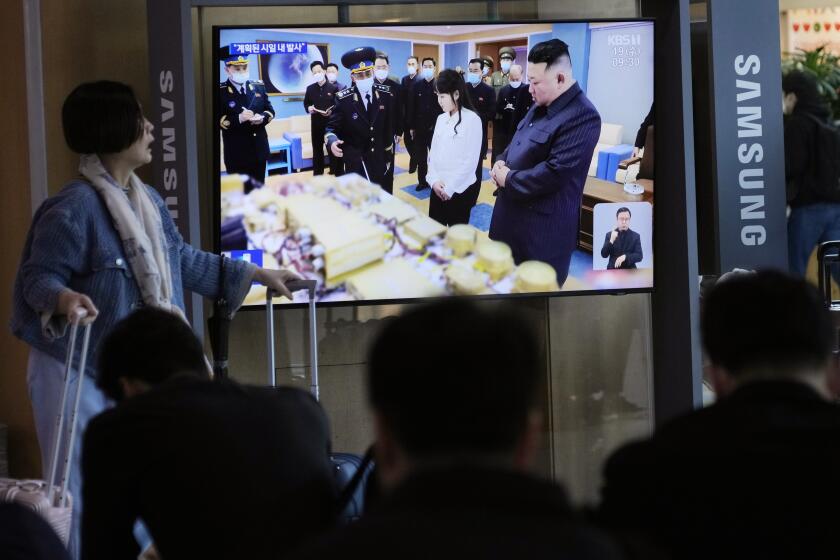North Korea launches rocket likely connected to military spy satellite

- Share via
SEOUL — North Korea launched a purported rocket Wednesday, a day after the country announced a plan to put its first military spy satellite into orbit, South Korea’s military said.
The South’s Joint Chiefs of Staff did not immediately provide details. After the launch, officials in Seoul sent alerts over public speakers and smartphones for residents to prepare for evacuation, but there were no immediate reports of damage or disruption.
Japan’s coast guard said Monday that North Korea informed it of a plan to launch a satellite between Wednesday and June 11. Japan’s defense minister ordered its forces to shoot down the satellite or debris if any entered Japanese territory.
A satellite launch by North Korea is a violation of U.N. Security Council resolutions that ban the country from using ballistic technology because it’s regarded as a cover for missile tests.
Ri Pyong Chol, a top North Korean official and close associate of leader Kim Jong Un, said Tuesday that North Korea was compelled to secure “a reliable reconnaissance and information” system because of what it said were escalating security threats by the United States and its allies. He said the North would launch a spy satellite in June.
North Korea says it plans to launch its first military spy satellite in June; South Korea warns that the north will face consequences.
It wasn’t immediately clear whether a North Korean spy satellite would significantly bolster its defenses. The satellite disclosed in the country’s state-run media didn’t appear to be sophisticated enough to produce high-resolution imagery. But some experts note that it is still likely capable of detecting troop movements and big targets, such as warships and warplanes.
Recent commercial satellite imagery of the North’s main rocket launch center in the northwest showed construction activities indicating that North Korea plans to launch more than one satellite.
And in his statement Tuesday, Ri said the country would be testing “various reconnaissance means.”
He said those surveillance assets are tasked with “tracking, monitoring, discriminating, controlling” and responding, both in advance and real time, to moves by the United States and its allies.
Kim Jong Un says he plans to launch North Korea’s first military spy satellite on an undisclosed date, state media reported Wednesday.
With three to five spy satellites, North Korea could build a space-based surveillance system that enables it to monitor the Korean peninsula in near real time, said Lee Choon-geun, an honorary research fellow at South Korea’s Science and Technology Policy Institute.
During his visit to the country’s aerospace agency this month, Kim emphasized the strategic significance a spy satellite could have in North Korea’s standoff with the United States and South Korea.
The satellite is one of several high-tech weapons systems that Kim has publicly vowed to introduce in recent years. Other weapons he has pledged to develop include a multi-warhead missile, a nuclear submarine, a solid-propellant intercontinental ballistic missile and a hypersonic missile.
Denuclearization talks with the U.S. have stalled since early 2019. In the meantime, Kim has focused on expanding his nuclear and missile arsenals in what experts say is an attempt to wrest concessions from Washington and Seoul. Since the beginning of 2022, North Korea has conducted more than 100 missile tests, many of them involving nuclear-capable weapons targeting the U.S. mainland, South Korea and Japan.
North Korea says its testing activities are self-defense measures meant to respond to expanded military drills between Washington and Seoul that it views as invasion rehearsals. U.S. and South Korean officials say that their drills are defensive and that they’ve bolstered them to cope with growing nuclear threats by North Korea.
More to Read
Sign up for Essential California
The most important California stories and recommendations in your inbox every morning.
You may occasionally receive promotional content from the Los Angeles Times.















